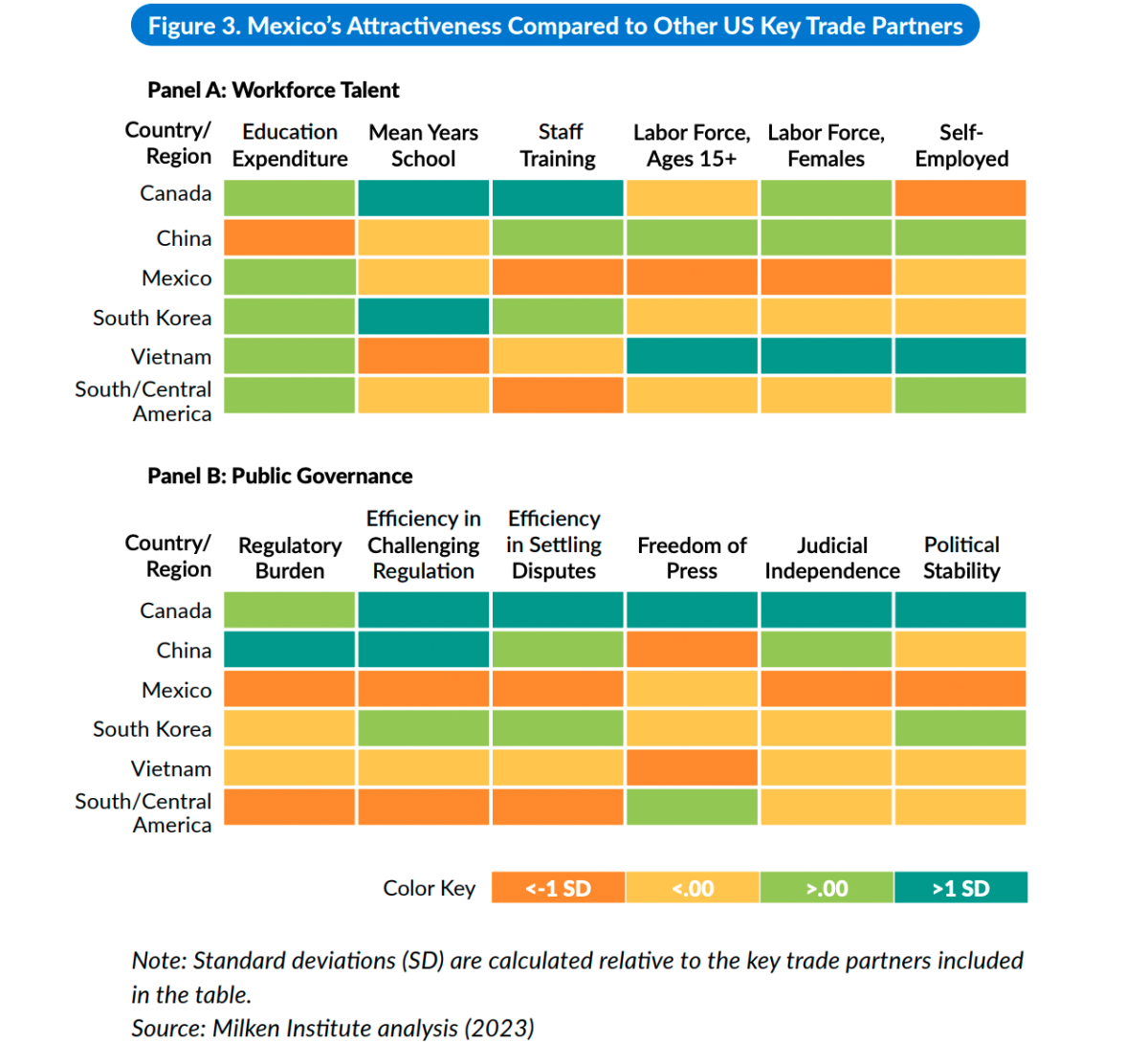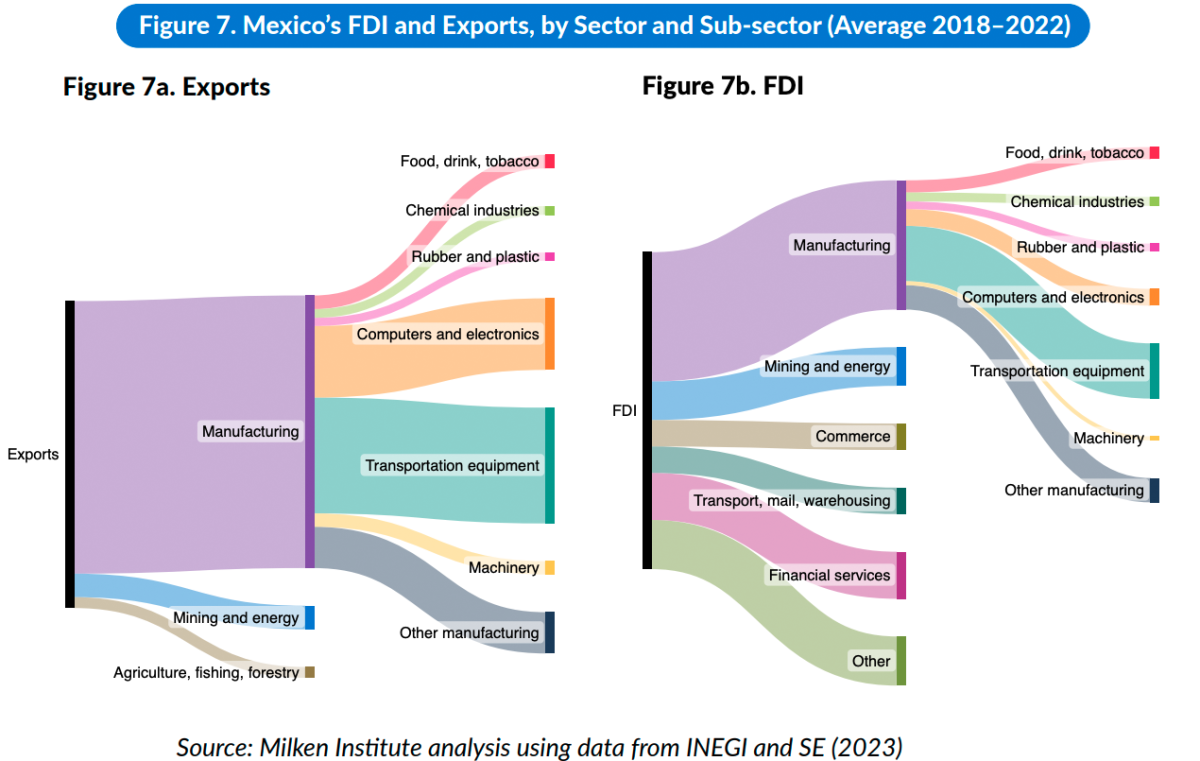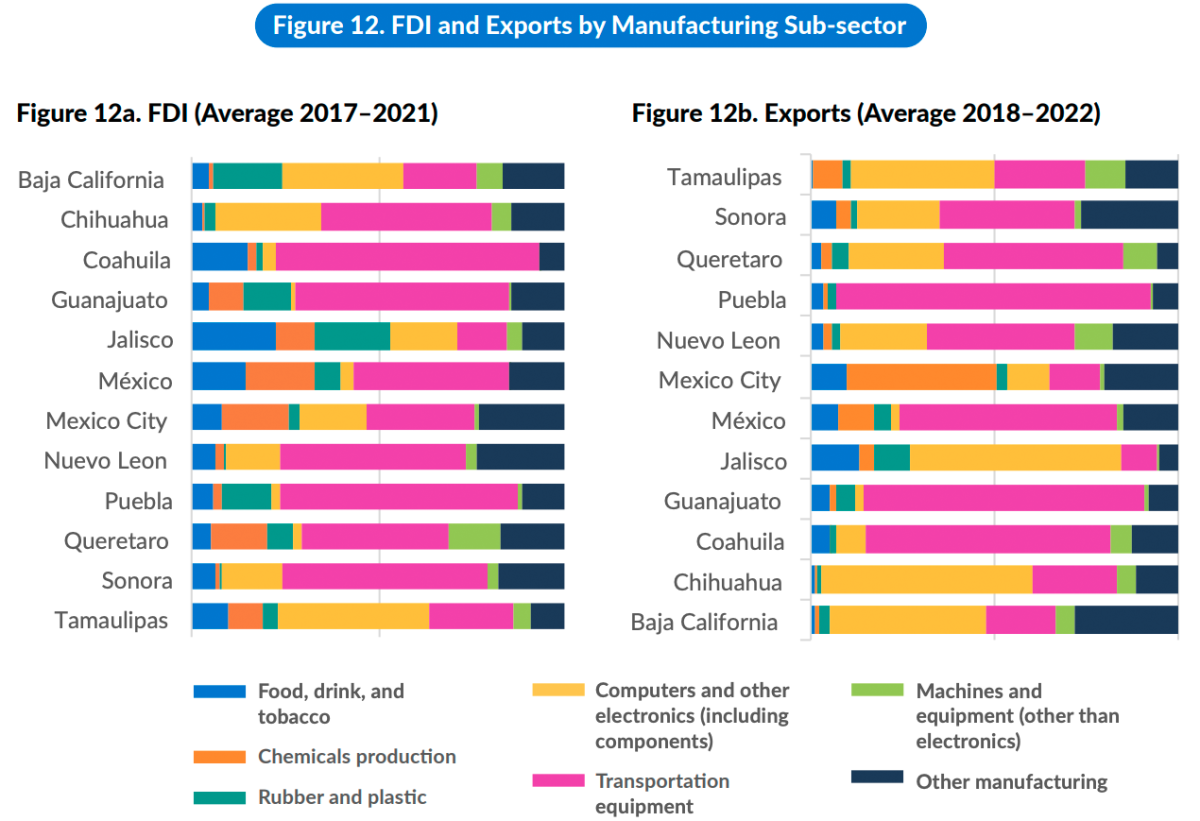Thank You for Downloading
Your download is complete—head to your Downloads folder to explore the insights.

In early 2023, US imports of goods from Mexico surpassed those from China, making Mexico the main origin of goods imported to the US for the first time in modern trade history. Mexico has long been a key US trade partner, with total US-Mexico trade growing 7.8-fold since the North America Free Trade Agreement (NAFTA) was enacted in 1994. Recent world events have amplified the importance of the US-Mexico trade partnership. Amid global supply chain problems and geopolitical tensions, the US has sought to strengthen its regional economic ties. This trend, commonly known as nearshoring, is reflected in President Biden’s 2023 trade policy agenda, which lists supply chain resilience and strong regional bonds among its top priorities.
In response to the growing importance of US-Mexico trade, the Mexico's Competitiveness as a Strategic Trade Partner report provides a primer on Mexico’s competitiveness as a US economic partner. By combining findings from the Milken Institute’s Global Opportunity Index (GOI) with Mexican state-level data, we provide a unique perspective on Mexico’s strengths and weaknesses at the national and sub-national levels. Our analysis is valuable for investors considering expanding their Mexican footprint, as well as policymakers interested in strengthening US-Mexico relations.
The report covers three main topics:
a global assessment of Mexico’s strengths and weaknesses compared to other US key trade partners;
analysis of trends in Mexico’s growth, trade, and investment across key sectors and manufacturing sub-sectors; and
a state-by-state overview of Mexico’s performance as measured by trade, investment, and factors impacting states’ attractiveness to investors.
The conclusion discusses the implications of the report’s findings on the potential for the US to redirect its supply chains, and increase its investment, into Mexico.
View the Spanish version of this report.
View the Interactive Map.


